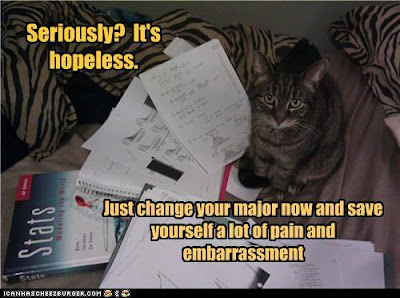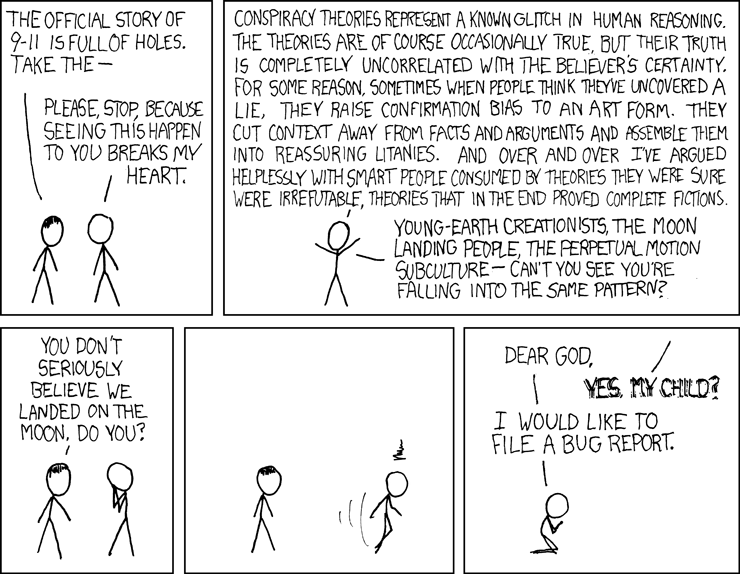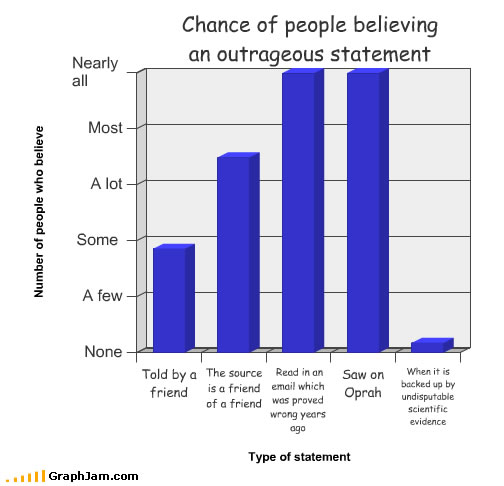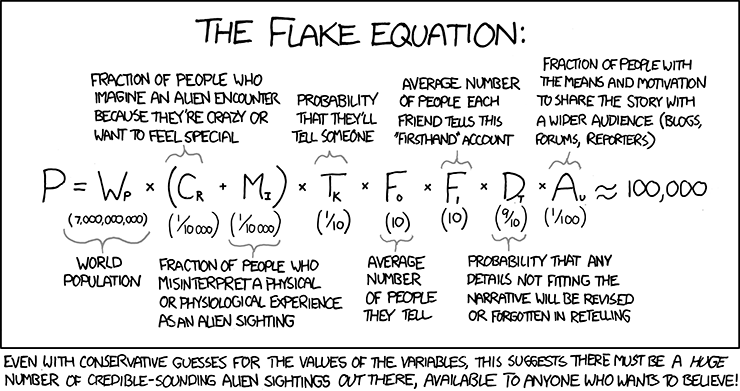A blog I like is Overcoming Bias. Their mission statement is sublimely anti-I'M-SPECIAL-ist:
"How can we better believe what is true? While it is of course useful to seek and study relevant information, our minds are full of natural tendencies to bias our beliefs via overconfidence, wishful thinking, and so on. Worse, our minds seem to have a natural tendency to convince us that we are aware of and have adequately corrected for such biases, when we have done no such thing."This may sound insulting, but one of the goals of this class is getting us to recognize that we're not as smart as we think we are. All of us. You. Me! That one. You again. Me again!
So I hope you'll join the campaign to end I'M-SPECIAL-ism.











